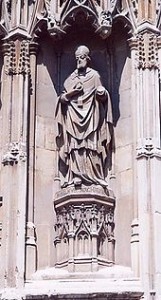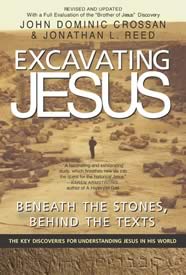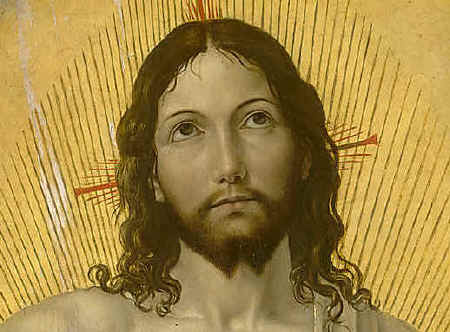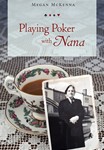
photo by Rachel J Allen
The following is a substantial excerpt from Franciscan Richard Rohr’s article in the July August 2002 issue of Sojourners Magazine “Beyond Crime and Punishment” dealing with the clerical sex abuse scandal. Fr. Rohr is the founder of the Center for Action and Contemplation and is a contributing editor at Sojourners
“The Myth of Male Celibacy”
THE REVELATIONS OF the last year seem to be the beginning of the end of what some call “the myth of celibacy.” It’s not that male celibacy was always false or deceitful, but it was in great part an artificial construct. Men, with the best of original intentions, found out that they were not the mystics that celibacy demanded. That is exactly the point. Celibacy, at least in the male, is a most rare gift. To succeed, it demands conscious communion with God at a rather mature level, it demands many transitions and new justifications at each stage of life, and it demands a specific creative call besides. Many who have ostensibly “succeeded” at it have often, by the second half of life, actually not succeeded—in the sense of becoming a God lover, a human lover, and a happy man besides.
Practically, however, the demand for celibacy as a prerequisite for ministry is a setup for so many false takers. Not bad men, just men who are still on a journey: young men who need identity; insecure or ambitious men who need status; passionate men who need containment for their passions; men who are pleasing their pious mothers or earning their Catholic father’s approval; men who think “the sacred” will prevent their feared homosexuality, their wild heterosexual hormones, or their pedophilia; men with arrested human development who seek to overcompensate by identification with a strong group; men who do not know how to relate to other people and to women in particular.
None of these are bad men; they are just on a many-staged journey, and we have provided them an attractive way-station that often seems to work—for a while. But then they go on to the next stage and find themselves trapped, searching, conflicted, split, acting out, or repressing in, and often at variance with their now public and professed image.
The process lends itself to a Jekyll-and-Hyde syndrome, even among men who are very honest and humble in other areas. The price is far too high once you have committed your life publicly and sacredly. I know how hard it continues to be for me, my closest priest friends, and many that I have counseled and confessed. Many of us stay in not because we believe the official ideology of celibacy anymore, but because we believe in our work, we love the people, and we also know God’s mercy. But that loss of belief in the very ideology is at the heart of the whole problem now. We cannot prop up with law and social pressure what the Spirit does not appear to be sustaining. The substructure has collapsed. “Unless the Lord builds the house, they labor in vain who build it” (Psalm 127:1).
Add to that a rather large superstructure of ascribed status and security, and we have a system that is set up for collapse. Studies of male initiation say it is dangerous to give ascribed status to a man who has not journeyed into powerlessness. He will likely not know how to handle power, and may even abuse it, as we have now seen.
In general, I think healthy male celibacy is rare, and it probably is most healthy as an “initiation” stage to attain boundaries, discipline, integrity, depth, and surrender to God. In the long run, most men, as the Buddha statues illustrate, need to have one hand touching the earth, the concrete, the physical, the material, the sexual. If they do not, the other hand usually points nowhere.
WE SHOULD MOVE ahead reaffirming our approach to grace, healing, mercy, solidarity with sinners, patience, and transformation—while also cooperating with the social system whenever there are true victims’ rights to be redressed. We should do this generously, magnanimously, and repentantly.
We Catholics should also see celibacy as primarily an intense initiation course of limited (one to 10) years, much like the monks in many Asian countries. Celibacy has much to teach the young male about himself, about real passion, prayer, loving others, and his True Self in God. We dare not lose this wonderful discipline and container. (Who knows, maybe both Jesus and Paul were still in that early period of life?!) It could be a part of most Catholic seminarians’ training, and during that time much personal growth could take place. Some would likely choose it as a permanent state. Most would not.
How differently the entire process of priestly formation would be configured. What a gift to the religious orders (where celibacy is essential). Our precise charism would become clear, although we would surely become much smaller. What an opening to the many fine men who are attracted to a marriage partner. And what focused intensity this could give to spiritual formation during that celibacy period, instead of all of the hoop games, telling the directors what they want to hear, mental reservations, non self-knowledge, acting out, and “submarine” behavior that make many seminaries a haven for unhealth. Seminaries would not drive away sincere spiritual seekers, but would attract them. Not men looking for roles, titles, and uniforms to disguise identity, but men looking for holiness and God through which to express identity.
Male sexuality does not go away. It is not easily sublimated or integrated. It is either expressed healthily or it goes underground in a thousand different ways. Sex is and probably always will be a central issue for most males, and it can never develop honestly inside of a “hothouse” of prearranged final conclusions.
We should not be looking for a system where mistakes can never happen, but just a system that can distinguish health from unhealth and holiness from hiding. Like no other institution, the church should be the most prepared to deal with mistakes. That is our business. The steps to maturity are necessarily immature. Let’s start by mentoring the good and the true, and also surrendering to that mystery of grace, forgiveness, and transformation that is our birthright as Christians. Many priests and seminarians have always done this, and I hope this gives them the courage to know why and how they are both “sons and heirs” of a true wisdom tradition. Such disciplined sons, and only such sons, have earned the authority of “fathers.”
Richard Rohr, OFM, is founder of the Center for Action and Contemplation in Albuquerque, New Mexico.
Read More
























